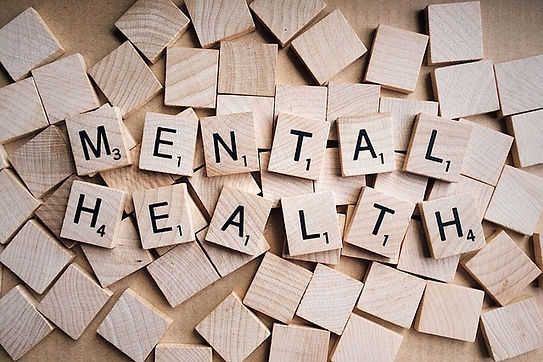
Cancer & Mental Health
It is not uncommon for a cancer diagnosis to affect the emotional health of patients, families, and care-partners--whether it be stress, anxiety, or depression. You may be feeling grief over how your life was, worry about the current/future unknowns, burnout with managing your health, and frustration with how roles and relationships have changed.
Even so, it is important to take time to take care of yourself through it all. Part of "self-care" is taking intentional steps to address our own physical and emotional health to better face the challenges that life may bring our way. Below are some helpful resources to try if you aren't quite sure where to start.
Self-Care Goals
Taking care of physical & psychological health
Managing & reducing stress
Recognizing emotional & spiritual needs
Fostering & sustaining relationships
Achieving balance in different areas of one’s life
Developing a Self-Care Action Plan
The picture on the right is a model for developing a self care action plan. I want to acknowledge that this is not the only way to make one, however it provides a great visual to the various domains in our lives which can contribute to our own well-being. Take time to brainstorm the people, programs, and activities in your lives that help you feel recharged.
Additionally, no pressure to fill this all out at once. The purpose of this self-care action plan is to create a personal resource you can have ready to go for those times you really need to take care of yourself but may be too overwhelmed to know where to start.
*I want to also acknowledge that I received this resource from a Mental Health First Aid Training Course.

Self-Care Strategies
1. Create a Self-Care Routine: Develop a consistent daily or weekly self-care routine that addresses both your physical and emotional well-being. Prioritize in activities that are personally rejuvenating & recharging.
2. Set Boundaries: Learn the power of saying "no" when necessary to avoid overextending yourself. Establish clear boundaries between work and personal life to ensure you have ample time for relaxation, rest, and spending quality moments with loved ones.
3. Adopt a Nutritious Diet: Strive for a healthy and balanced diet.
4. Prioritize Restful Sleep: Ensure you get sufficient and restful sleep every night. Aim for 7-8 hours, as adequate sleep is essential for emotional regulation and maintaining good health.
5. Engage in Physical Activity: Regularly participate in physical activities that you enjoy. Exercise not only enhances your physical health but also positively impacts your mental well-being.
6. Attend to Personal Health: Make it a habit to schedule and attend routine medical checkups. Avoid skipping appointments to stay proactive with managing your health.
7. Seek Support: Don't hesitate to share your experiences and feelings with friends, family, colleagues, and/or a mental health professional. Support from a network of understanding individuals can help alleviate the burden and provide fresh perspectives.
8. Take Regular Breaks: Make it a priority to take short breaks to recharge throughout the day i.e. a few minutes of deep breathing or stretching. Limit your time on electronic devices and social media to declutter your mind and be fully present in your life.
9. Practice Mindfulness Cultivate mindfulness to stay present in the moment, reduce stress, and tackle challenging situations with clarity. During difficult times, be kind to yourself and practice self-compassion, avoiding self-criticism.
10. Practice Gratitude: Embrace gratitude to shift your focus away from stressors and enhance your overall well-being.
11. Engage in Leisure Activities: Dedicate time daily to activities that bring joy and relaxation. Engaging in leisure activities helps you unwind, recharge, and maintain a positive outlook on life.
12. Make time to laugh, never forget that life was meant to be enjoyed not just endured.
References
National Council for Behavioral Health, & Missouri Department of Mental Health. (2015). Mental Health Fist Aid USA first edition (revised), adult. National Council for Behavioral Health.


